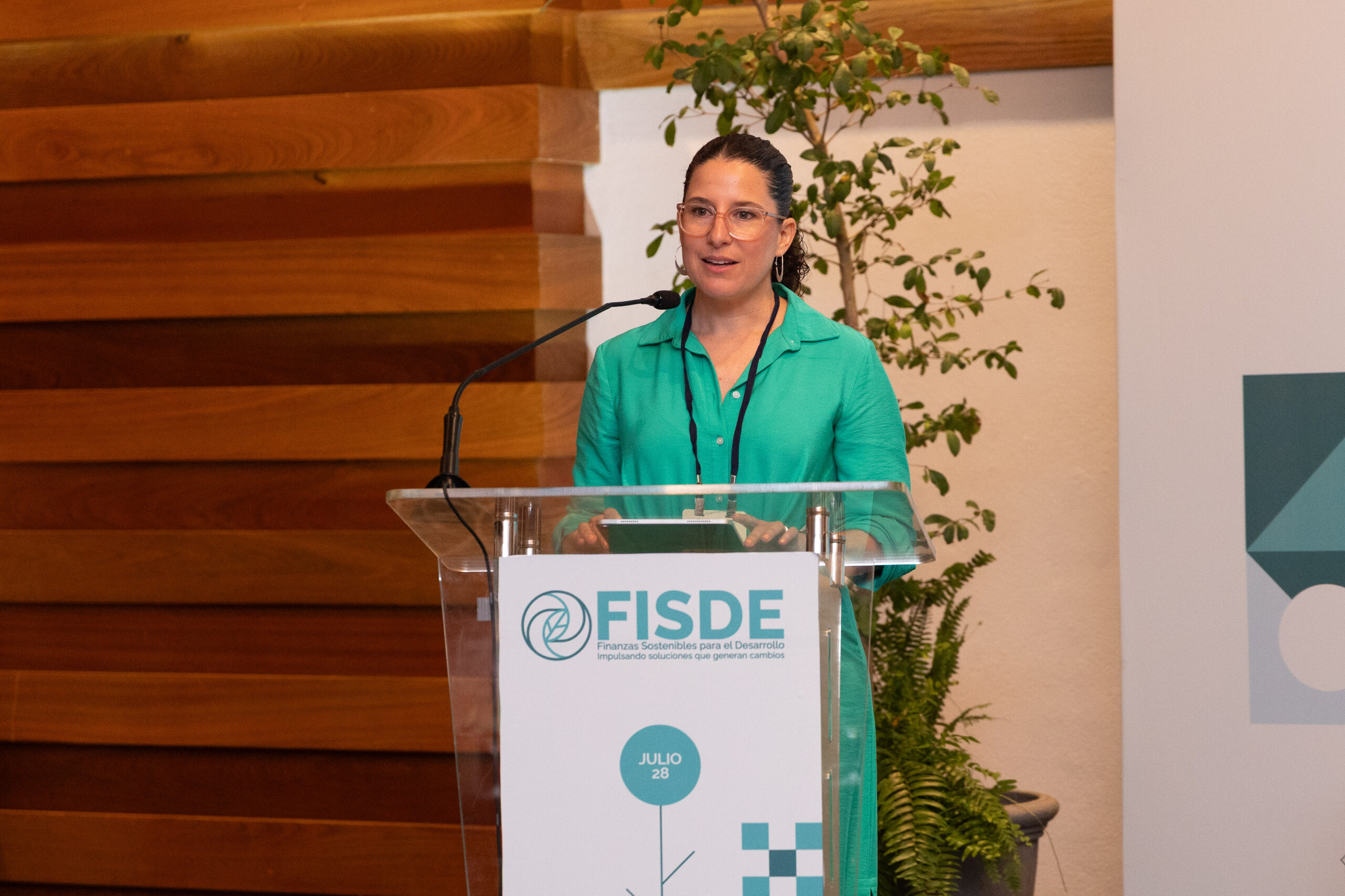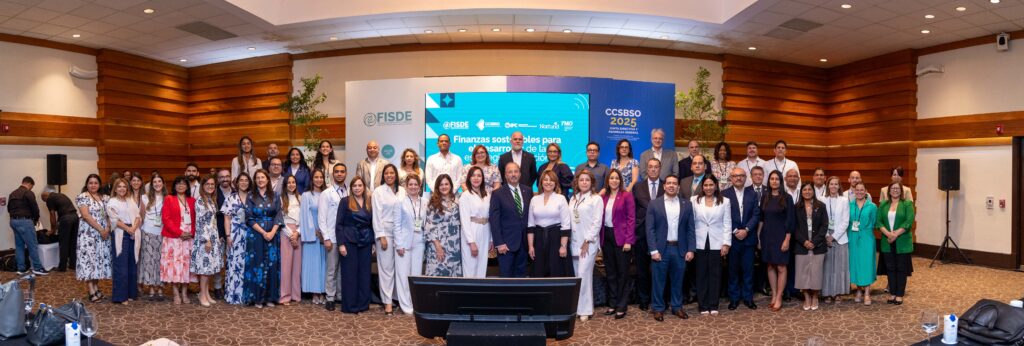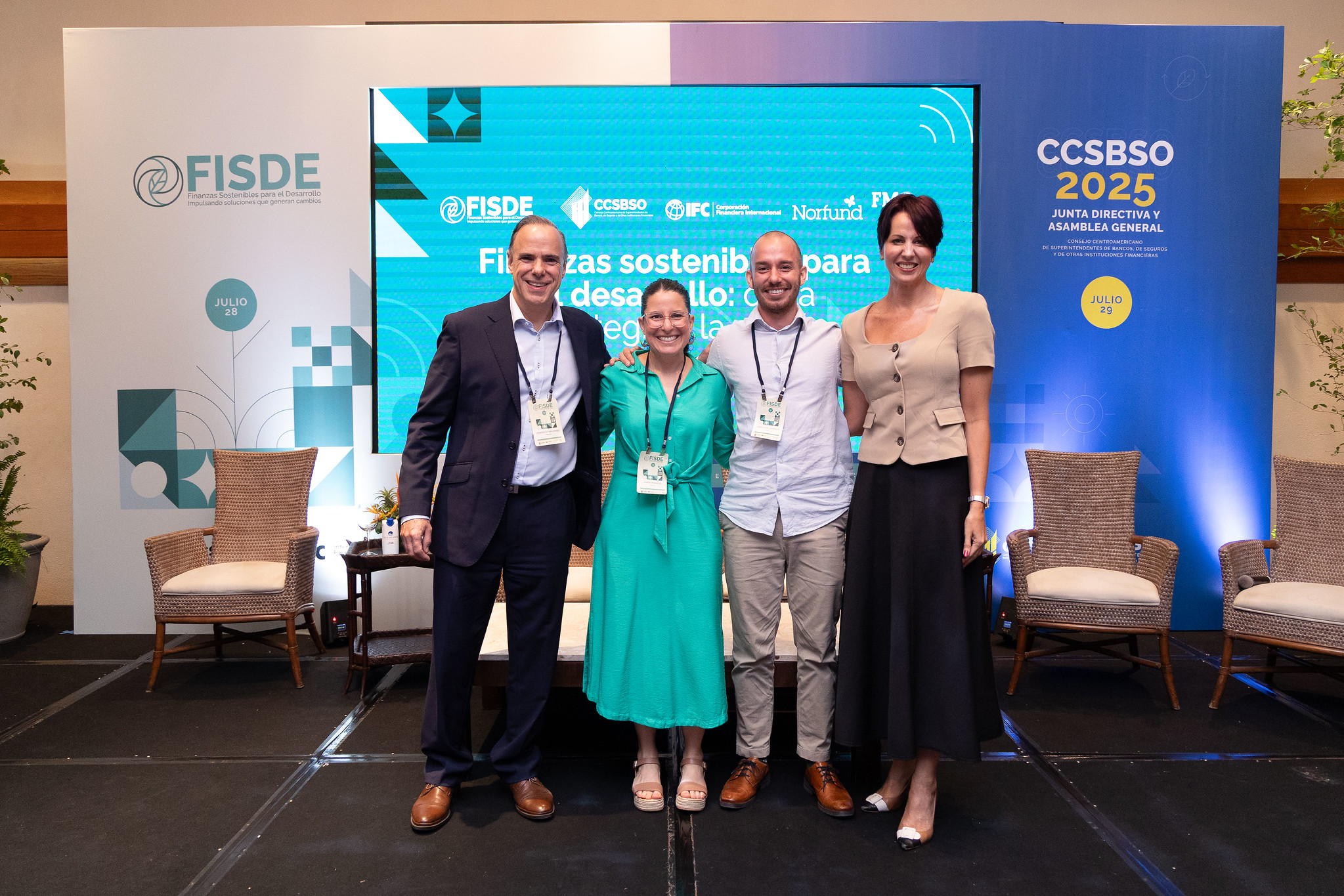After four years of collaboration, the Central American Council of Superintendents of Banks, Insurance Companies and Other Financial Institutions (CCSBSO), IFC, FMO and Norfund have concluded the Sustainable Finance for Development (FISDE) initiative, aimed at strengthening the resilience of financial systems In Central America, Colombia and the Dominican Republic.
Through FISDE, eight national supervisory authorities now have access to tools and roadmaps aligned with international standards and adapted to local contexts – enabling the integration of ESG criteria into regulation, supervision and financial management.

“We’re proud to have contributed through our Business Support facility to strengthen regulatory frameworks and promote ESG in financial systems, helping lay the groundwork for more resilient financial markets in the region,”
Maria Fernanda Morales Dada, E&S Manager at Norfund
One of the key outcomes of the FISDE initiative is the development of a regional green taxonomy. This taxonomy enables the classification of environmentally positive investments in a consistent way across countries in the region. It provides a shared framework for defining sustainable economic activities, facilitating harmonization of criteria across jurisdictions. While tailored to local contexts, the taxonomy is aligned with international standards and will serve as a vital tool for both regulators and financial institutions in advancing green finance and mitigating greenwashing risks.
The initiative also delivered tangible capacity-building results: Over 100 supervisory staff participated in technical training, and several countries conducted pilot exercises to test climate risk integration in supervision. A regional platform for knowledge exchange and coordination has also been established.
FISDE has helped embed sustainable finance as a strategic priority across the region. The development of ESG roadmaps required a consultation process with external stakeholders, which generated key recommendations and findings to strengthen supervisory capacities and support the design of public policy tools for sustainable finance. These roadmaps are now in place across supervisory authorities, with mechanisms for continued collaboration between technical teams and strategic partners in motion beyond the project’s conclusion. Importantly, they also send clear signals to the market to encourage further progress.

The closing event in the Dominican Republic brought together supervisory authorities, private banks and multilateral institutions to reflect on progress in sustainable finance. Several Norfund investees shared their experiences and lessons learned on ESG integration and risk management. Grupo Promerica, Grupo BAC, and BHD openly reflected on their approaches to E&S risk management, financial inclusion, and climate risk assessment. Their contributions brought valuable real-world insights to the dialogue and helped bridge perspectives between supervisory authorities and the financial sector. Norfund’s Regional Director Federico Fernandez shared reflections on the power of strategic partnerships to accelerate a just transition.
“This is a strong example of how good collaboration across the usual silos combined with targeted technical assistance can strengthen institutions and lay the groundwork for more resilient, inclusive financial systems,” said Morales Dada.
